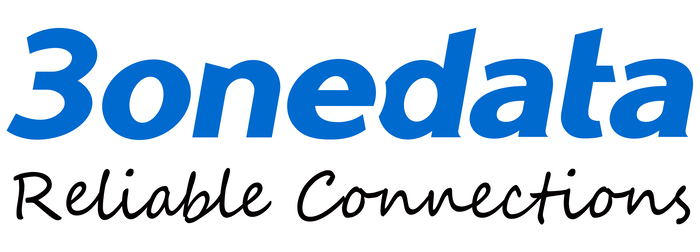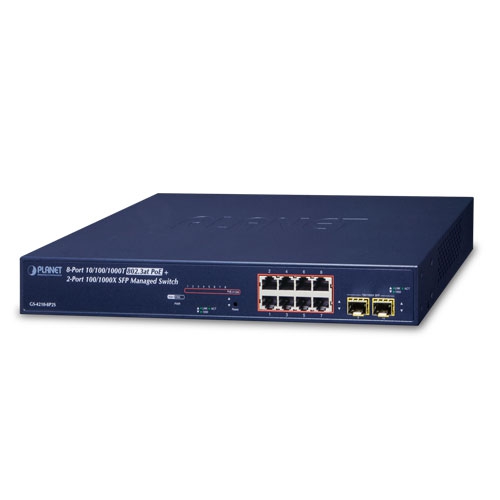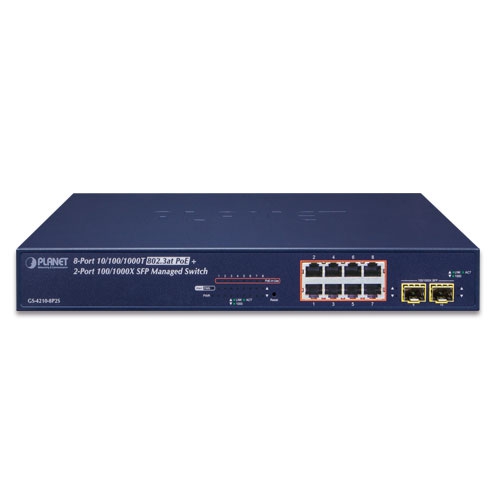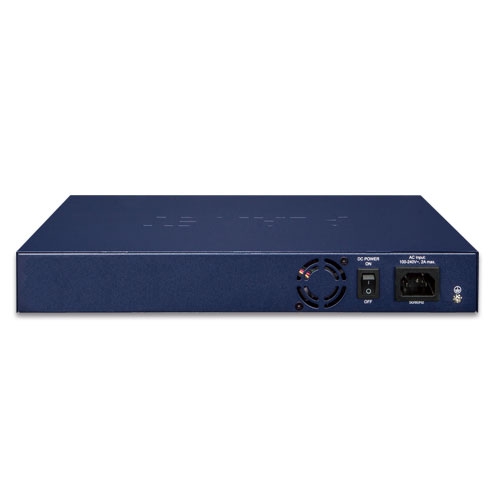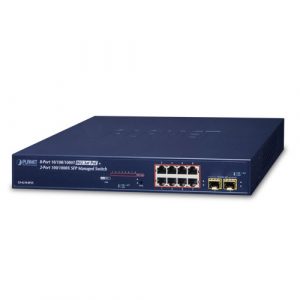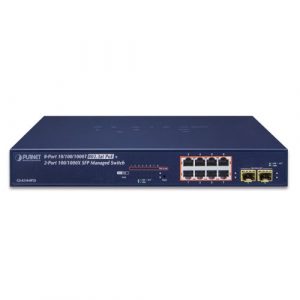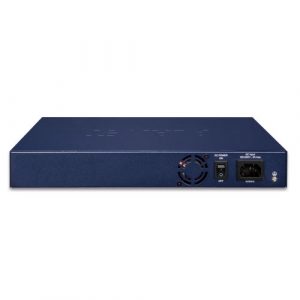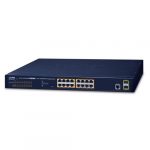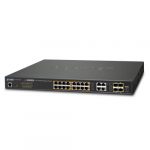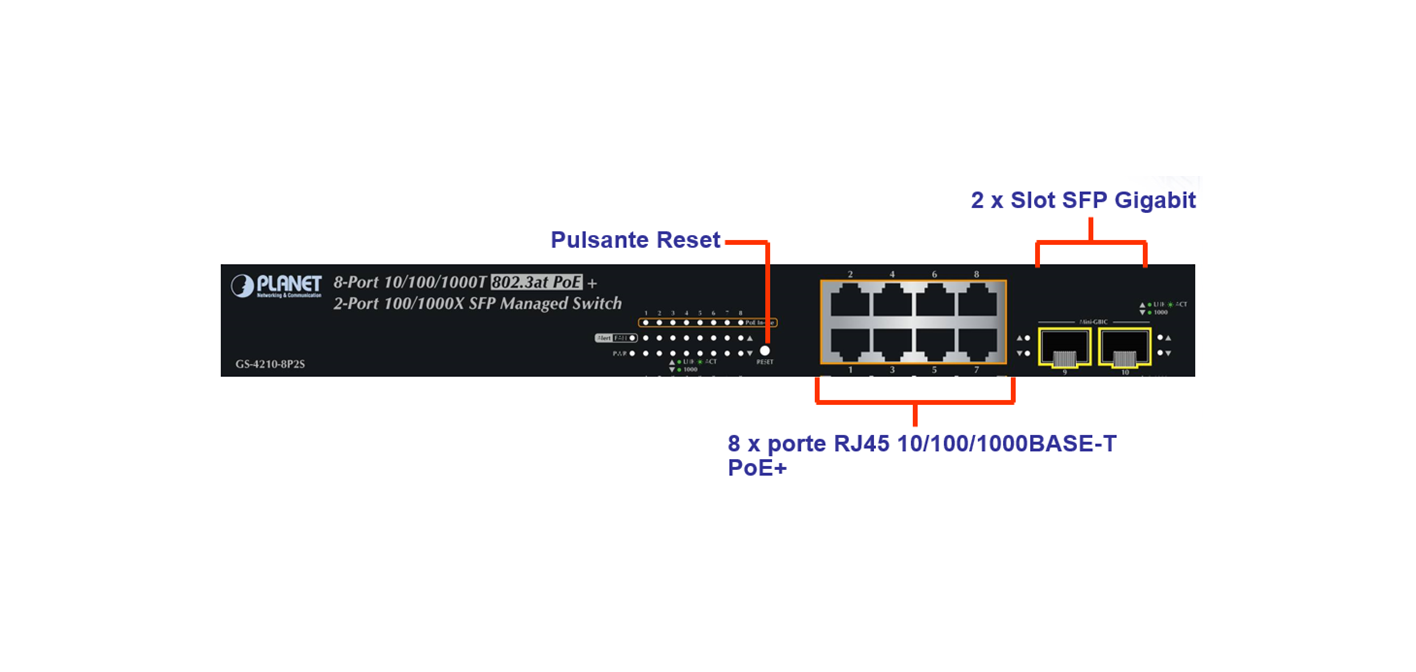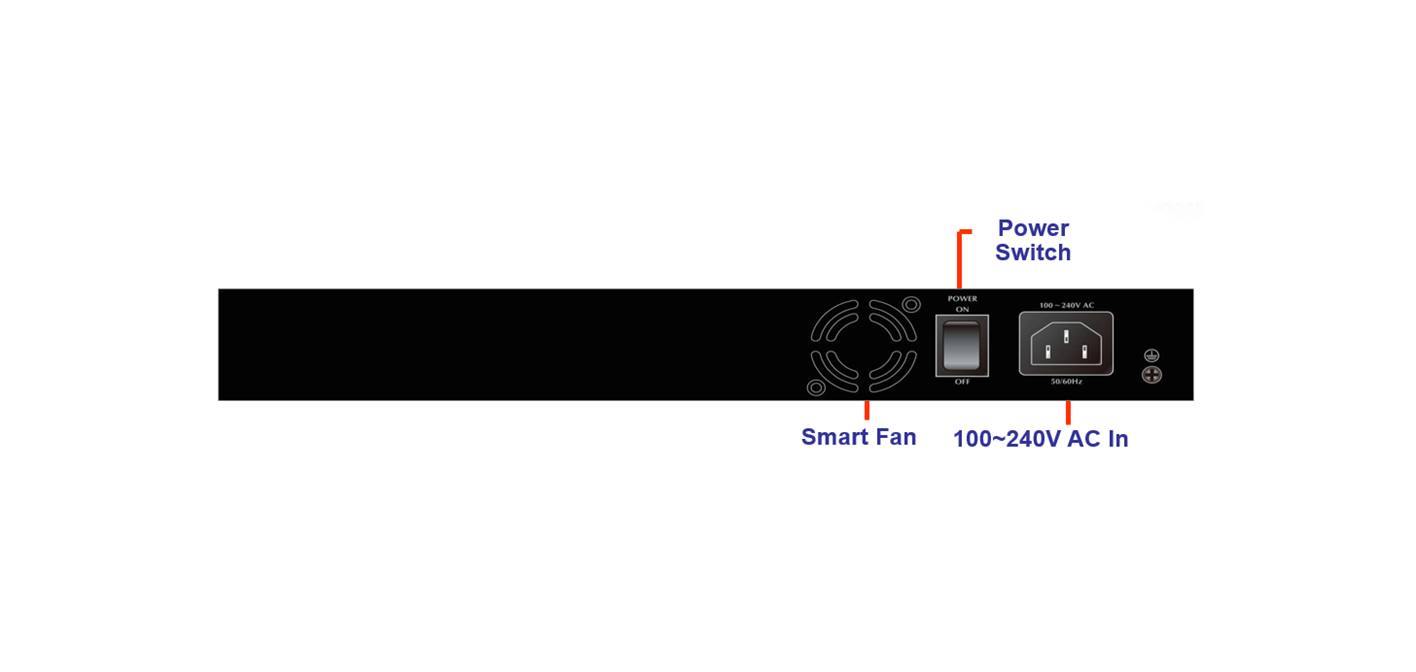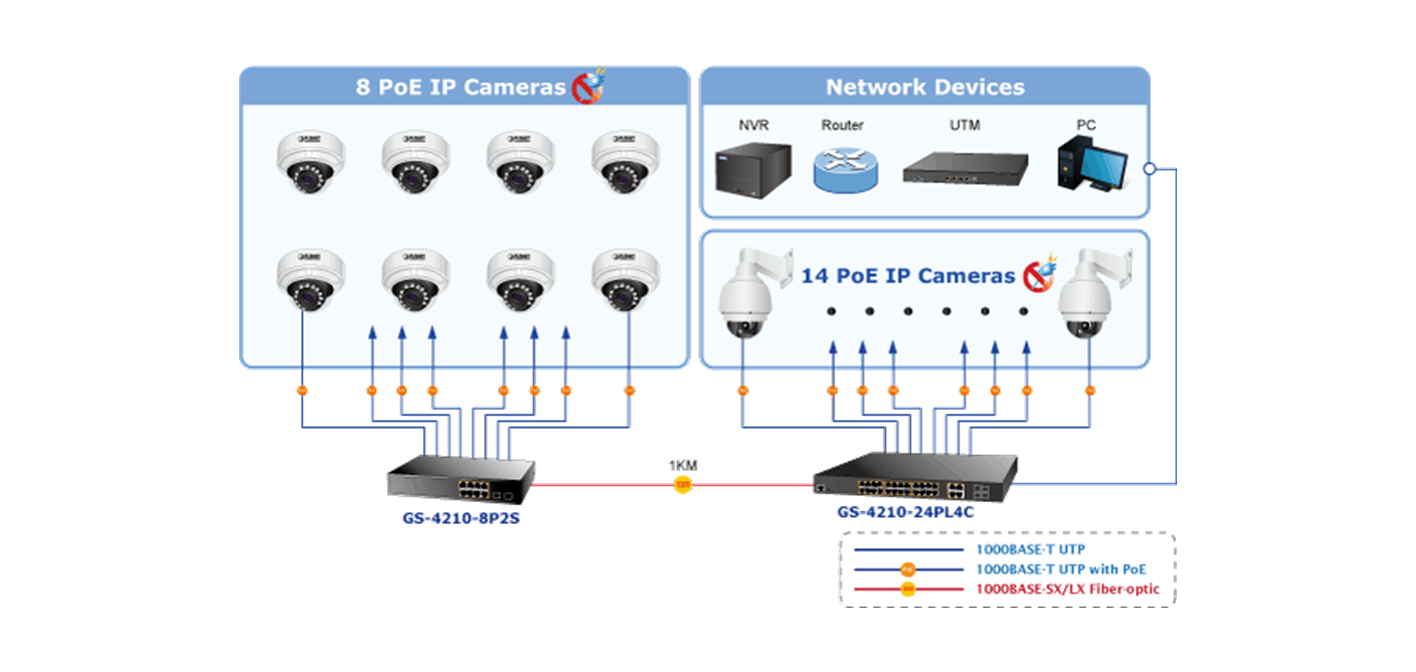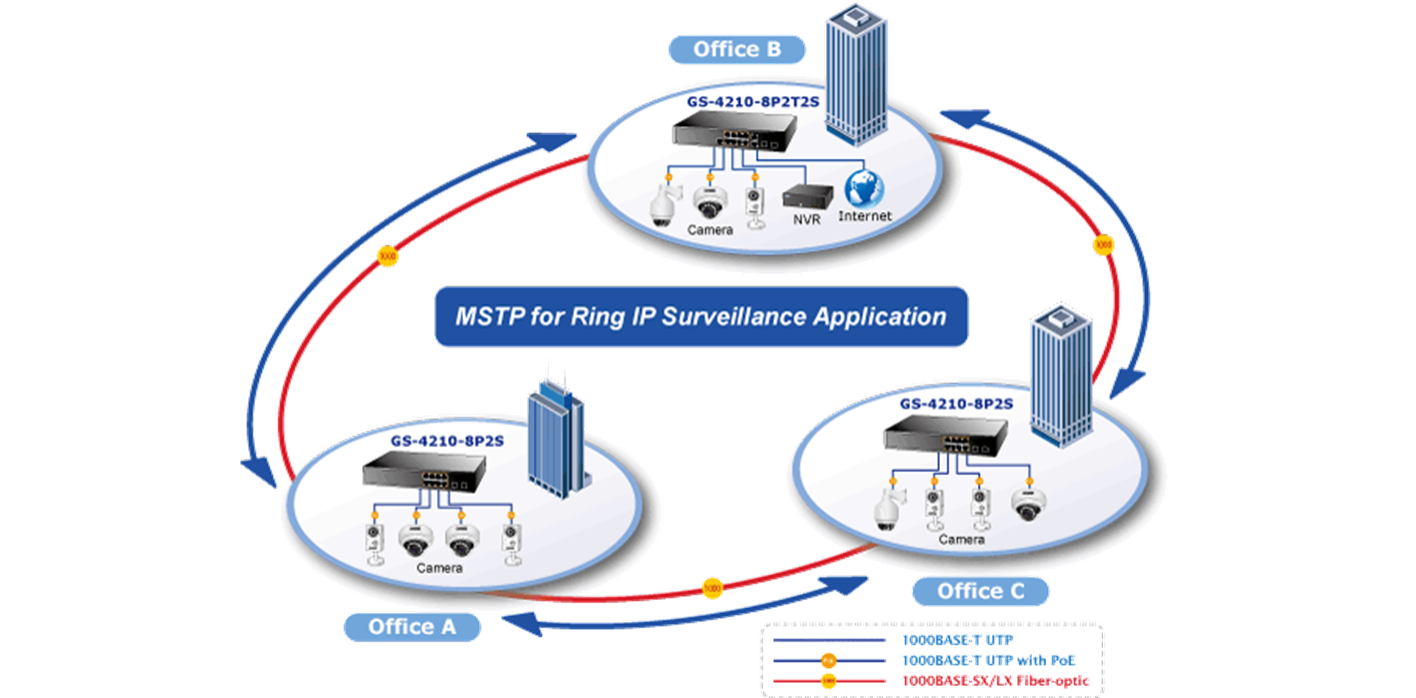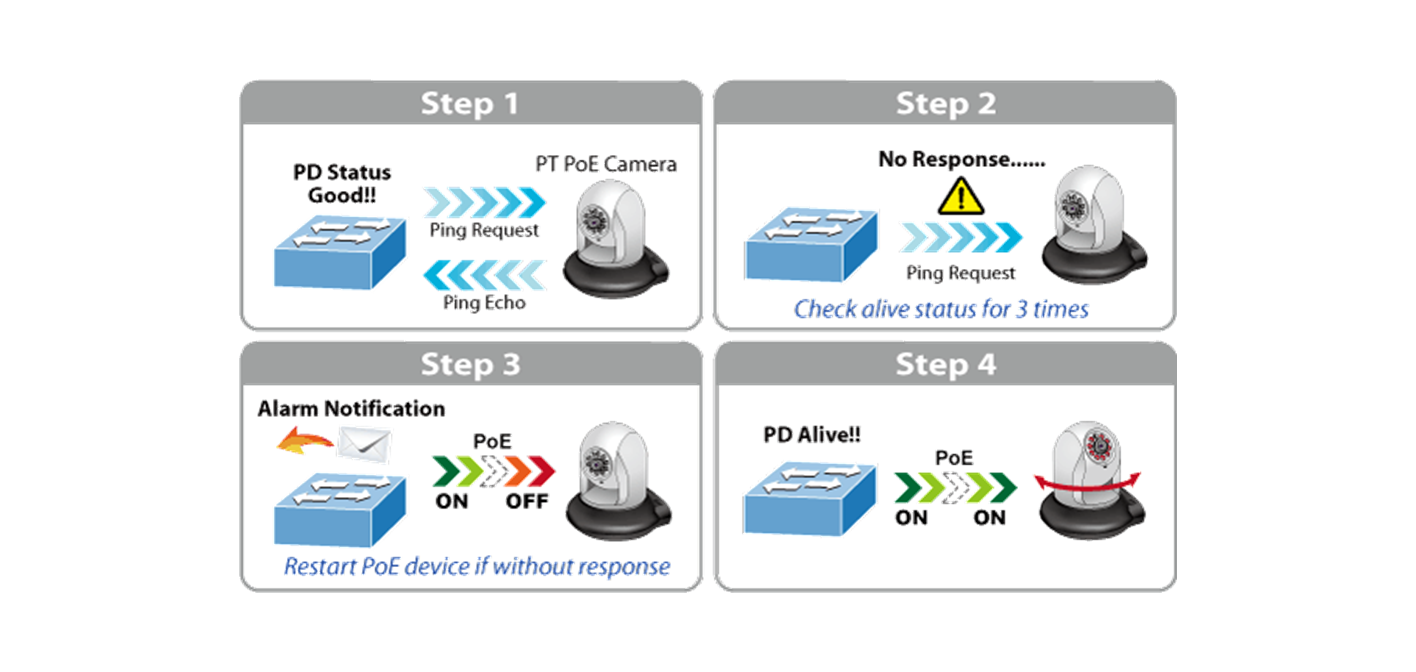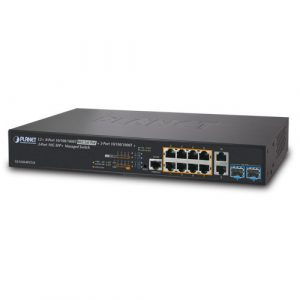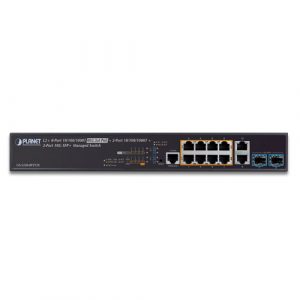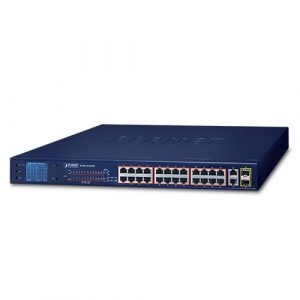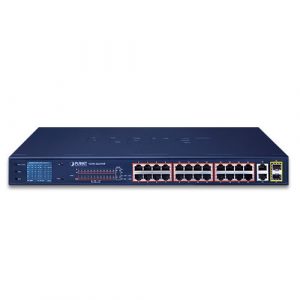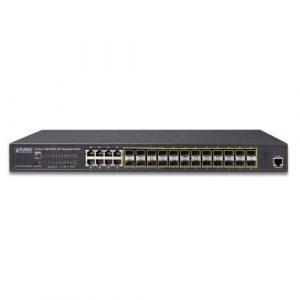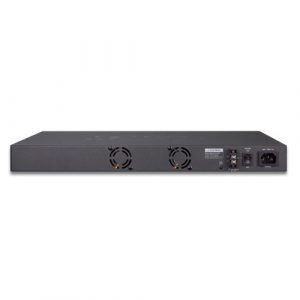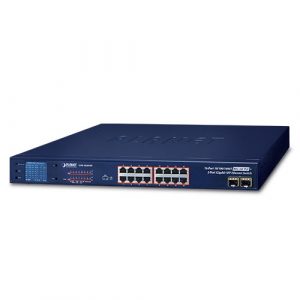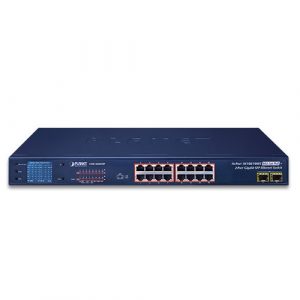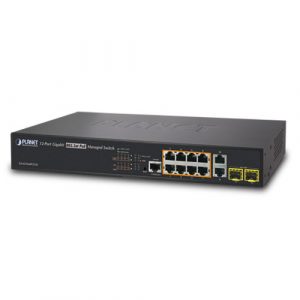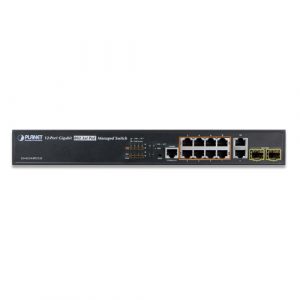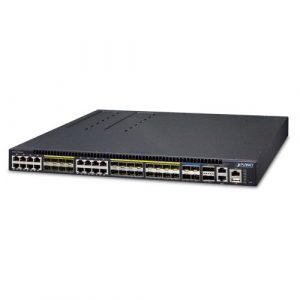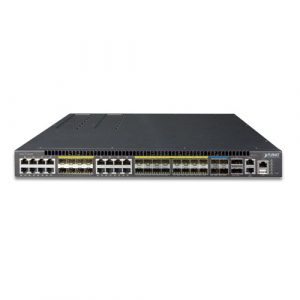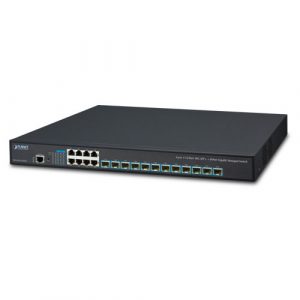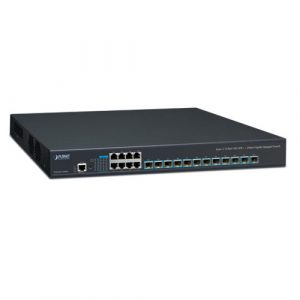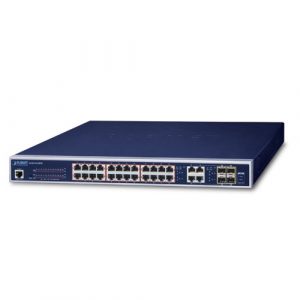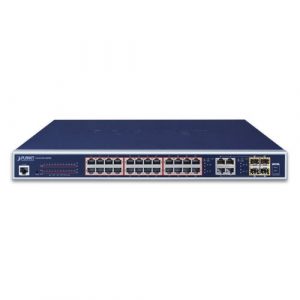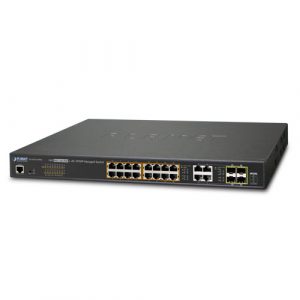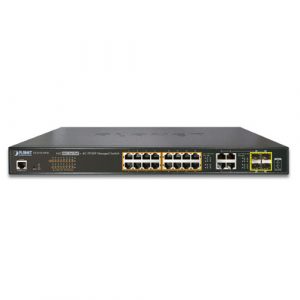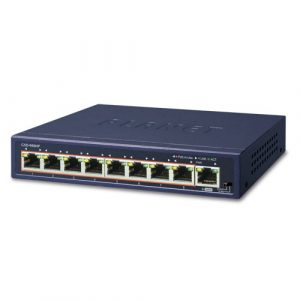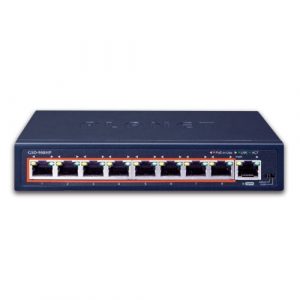GS-4210-8P2S
IPv4/IPv6, 8-Port Managed 802.3at POE+ Gigabit Ethernet Switch + 2-Port 100/1000X SFP (120W)
- Applicazioni
- SPECIFICHE
- DOWNLOAD
Descrizione
Uno switch PoE+ gestito perfetto con commutazione L2/L4 avanzata e sicurezza
PLANET GS-4210-8P2S è uno switch PoE+ Gigabit gestito di dimensioni desktop e dal costo ottimizzato, dotato di funzioni PoE intelligenti PLANET per migliorare la disponibilità delle applicazioni aziendali critiche. Fornisce gestione dual stack IPv6/IPv4 e motore di commutazione Gigabit L2/L4 integrato insieme a 8 porte 10/100/1000BASE-T con PoE+ 802.3at da 30 watt e 2 slot in fibra SFP 100/1000BASE-X aggiuntivi. Con un budget di potenza totale fino a 140 watt per diversi tipi di applicazioni PoE, fornisce una soluzione di rete Power over Ethernet rapida, sicura e conveniente per piccole aziende e grandi aziende.
Alta scalabilità per soluzioni moderne di videosorveglianza IP a 8 canali
Il modello GS-4210-8P2S è dotato di design non bloccante e moduli SFP in fibra ottica, che offrono alle infrastrutture di rete maggiore flessibilità e ad un costo inferiore. Con otto porte PoE 10/100/1000BASE-T e due slot SFP Gigabit, lo switch permette di costruire facilmente una soluzione di videosorveglianza su NVR, per utenti SOHO/SMB. Ad esempio, può funzionare con otto telecamere IP PoE ed estendere facilmente l’infrastruttura di rete.
Protocollo Multiple Spanning Tree con soluzione PoE IP office per PMI/Workgroup
Lo switch dispone di una forte capacità di rapido auto-recupero per prevenire interruzioni del servizio e intrusioni esterne; incorpora nella rete di automazione del cliente la tecnologia 802.1s MSTP (Multiple Spanning Tree Protocol), per potenziare l’affidabilità del sistema e il tempo di attività. Applicando lo standard Power over Ethernet IEEE 802.3at, può connettersi direttamente con qualsiasi nodo finale IEEE 802.3at quali telecamere di rete PTZ (Pan, Tilt & Zoom) e telecamere speed dome. GS-4210-8P2S permette alle imprese di costruire facilmente, con l’infrastruttura di rete disponibile, sistemi wireless AP, telecamere IP e VoIP in cui l’alimentazione può essere controllata centralmente.
Controllo live del dispositivo alimentato (PD)
Lo switch può essere configurato per monitorare, in tempo reale, lo stato del PD collegato, tramite comando ping. Nel caso in cui il PD smetta di funzionare e di rispondere, lo switch riprenderà l’alimentazione della porta PoE e riporterà il PD in funzione, aumentando così l’affidabilità della rete e riducendo l’onere di gestione dell’amministratore.
Riavvio automatico programmato
GS-4210-8P2S consente il riavvio, ad un’ora specifica di ogni settimana, delle telecamere IP PoE o degli AP PoE wireless, riducendo così l’eventualità di un crash a causa di un sovraccarico del buffer.
| Hardware Specifications | |
|---|---|
| Copper Ports | 8 10/100/1000BASE-T RJ45 auto-MDI/MDI-X ports |
| SFP/mini-GBIC Slots | 2 100/1000BASE-X SFP interfaces Supports 100/1000Mbps dual mode and DDM |
| PoE Injector Port | 8 ports with 802.3at / af PoE injector function with port-1 to port-8 |
| Switch Architecture | Store-and-Forward |
| Switch Fabric | 20Gbps / non-blocking |
| Switch Throughput@64Bytes | 14.88Mpps |
| Address Table | 8K entries |
| Shared Data Buffer | 4.1 megabits |
| Flow Control | IEEE 802.3x pause frame for full duplex Back pressure for half duplex |
| Jumbo Frame | 10K bytes |
| Reset Button | < 5 sec: System reboot > 5 sec: Factory default |
| LED | System: PWR x1(Green) SYS x1 (Green Per PoE Port (Port 1 to Port 8): LNK/ACT x1 (Green) PoE-in-use x1 (Orange) Per Gigabit SFP Port (Port 9 to Port 10): 1000 LNK/ACT x1 (Green) 100 LNK/ACT x1 (Orange |
| Power Requirements | 100~240V AC, 50/60Hz, auto-sensing |
| Dimensions (W x D x H) | 330 x 155 x 43.5 mm, 1U height |
| ESD Protection | Contact Discharge 4KV DC Air Discharge 8KV DC |
| Enclosure | Metal |
| Weight | 1687g |
| Power Consumption / Dissipation | 165 watts (max.) / 563 BTU |
| Fan | 1 smart fan |
| Power over Ethernet | |
| PoE Standard | IEEE 802.3af / 802.3at PoE+ PSE |
| PoE Power Supply Type | End-span |
| PoE Power Output | Per port 52V DC, 36 watts (max.) |
| Power Pin Assignment | 1/2(+), 3/6(-) |
| PoE Power Budget | 120 watts (max.) @ 25 degrees C 100 watts (max.) @ 50 degrees C |
| PoE Ability PD @ 9 watts | 8 units |
| PoE Ability PD @ 15 watts | 8 units |
| PoE Ability PD @ 30 watts | 4 units |
| PoE Management | PD Alive Check Scheduled Power Recycling PoE Schedule PoE Usage Monitoring PoE Extension |
| Layer 2 Functions | |
| Port Mirroring | TX/RX/both Many-to-1 monitor |
| VLAN | 802.1Q tagged VLAN Up to 256 VLAN groups, out of 4094 VLAN IDs 802.1ad Q-in-Q tunneling Voice VLAN Protocol VLAN Private VLAN (Protected port) GVRP |
| Link Aggregation | IEEE 802.3ad LACP and static trunk Supports 8 trunk groups with 8 ports per trunk group |
| Spanning Tree Protocol | STP, IEEE 802.1D Spanning Tree Protocol RSTP, IEEE 802.1w Rapid Spanning Tree Protocol MSTP, IEEE 802.1s Multiple Spanning Tree Protocol |
| IGMP Snooping | IGMP (v2/v3) snooping IGMP querier Up to 256 multicast groups |
| MLD Snooping | MLD (v1/v2) snooping, up to 256 multicast groups |
| Access Control List | IPv4/IPv6 IP-based ACL / MAC-based ACL |
| QoS | 8 mapping ID to 8 level priority queues – Port number – 802.1p priority – 802.1Q VLAN tag – DSCP field in IP packet Traffic classification based, strict priority and WRR |
| Security | IEEE 802.1X port-based authentication Built-in RADIUS client to cooperate with RADIUS server RADIUS / TACACS+ user access authentication IP-MAC port binding MAC filtering Static MAC address DHCP snooping and DHCP Option82 STP BPDU guard, BPDU filtering and BPDU forwarding DoS attack prevention ARP inspection IP source guard |
| Management Functions | |
| Basic Management Interfaces | Web browser / Telnet / SNMP v1, v2c Firmware upgrade by HTTP / TFTP protocol through Ethernet network Remote / Local Syslog System log LLDP protocol SNTP |
| Secure Management Interfaces | SSHv1/v2, TLS v1.2, SNMP v3 |
| SNMP MIBs | RFC 1213 MIB-II RFC 1215 Generic Traps RFC 1493 Bridge MIB RFC 2674 Bridge MIB Extensions RFC 2737 Entity MIB (Version 2) RFC 2819 RMON (1, 2, 3, 9) RFC 2863 Interface Group MIB RFC 3635 Ethernet-like MIB RFC 3621 Power Ethernet MIB |
| Standards Conformance | |
| Regulatory Compliance | FCC Part 15 Class A, CE, LVD |
| Standards Compliance | IEEE 802.3 10BASE-T IEEE 802.3u 100BASE-TX/100BASE-FX IEEE 802.3z Gigabit SX/LX IEEE 802.3ab Gigabit 1000T IEEE 802.3x flow control and back pressure IEEE 802.3ad port trunk with LACP IEEE 802.1D Spanning Tree protocol IEEE 802.1w Rapid Spanning Tree protocol IEEE 802.1s Multiple Spanning Tree protocol IEEE 802.1p Class of Service IEEE 802.1Q VLAN tagging IEEE 802.1x Port Authentication Network Control IEEE 802.1ab LLDP IEEE 802.3af Power over Ethernet IEEE 802.3at Power over Ethernet Plus RFC 768 UDP RFC 793 TFTP RFC 791 IP RFC 792 ICMP RFC 2068 HTTP RFC 1112 IGMP version 1 RFC 2236 IGMP version 2 RFC 3376 IGMP version 3 RFC 2710 MLD version 1 RFC 3810 MLD version 2 |
| Environment | |
| Operating | Temperature: 0 ~ 50 degrees C Relative Humidity: 5 ~ 95% (non-condensing) |
| Storage | Temperature: -20 ~ 70 degrees C Relative Humidity: 5 ~ 95% (non-condensing) |


